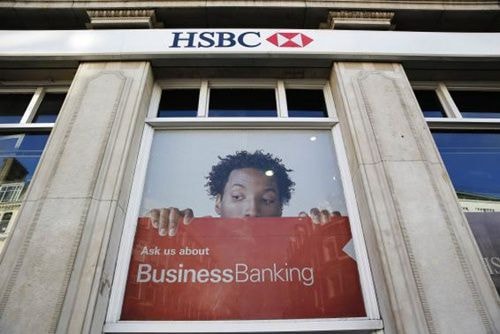Vietnam will review HSBC case of helping customers hide money
Vietnamese authorities will investigate 26 accounts on a list of more than 100,000 people that HSBC hid, suspected of being involved in tax evasion.
In response to the incident in which HSBC used the secret Swiss banking system to conceal the identities of 106,000 customer accounts in 203 countries, and in many cases helped depositors evade taxes, including 26 accounts related to Vietnam, Deputy Governor Nguyen Thi Hong said the State Bank will investigate the case.
A leader of the Anti-Money Laundering Department, State Bank also said that this agency has asked HSBC Vietnam to report the above incident to verify the accounts related to Vietnam. And to have further handling directions, he said, the investigation agency will have to verify whether HSBC's personal customer accounts related to Vietnam are illegal or not.
 |
| HSBC accused of helping clients launder money and evade taxes. Photo: Reuters. |
26 customers related to Vietnam with total assets of 37.5 million USD are mentioned in this list, of which 12% of accounts have Vietnamese owners (with Vietnamese passports) and the person with the largest asset is more than 12 million USD (equivalent to 252 billion VND).
The newly amended and supplemented Foreign Exchange Ordinance in 2013 only allows banks to provide money transfer services for investment, import-export payments, loans, foreign debt repayment, debt collection or one-way money transfers for medical treatment, education, subsidies, etc. The act of Vietnamese individuals residing in Vietnam depositing money into overseas accounts is not regulated in the Ordinance, so domestic banks are not allowed to provide money transfer services on behalf of organizations and individuals to deposit money into overseas accounts. This was explained by a representative of the State Bank as being aimed at preventing a large flow of foreign currency out of Vietnam in the context of thin foreign currency reserves.
"Vietnam is still a country that controls foreign exchange, so it can only be done if it is allowed. The government can fine banks if they still transfer money to customers," he said.
However, according to a banking expert, there are still ways for Vietnamese individuals with accounts at international banks, such as international students or people working abroad, to deposit money in that country. Therefore, in the case of HSBC, it is necessary to clearly determine whether this bank is the one transferring money for customers to deposit abroad or not in order to come up with a solution.
HSBC Vietnam also issued an official statement yesterday stating that the incident was related to a data theft that occurred at HSBC Switzerland's Private Bank several years ago and did not affect non-bank customers.
"HSBC customers can rest assured that the bank has been taking necessary measures to prevent similar situations from happening again," an HSBC representative emphasized.
Swiss private banks are often used by wealthy individuals to manage their wealth in a secretive manner. While there are many legitimate reasons to have a Swiss bank account, in some cases individuals have taken advantage of the bank’s secrecy clause to hold undisclosed assets. This has led to many private banks having clients who do not meet their tax obligations.
But according to HSBC, the Swiss bank's private bank has undergone radical changes in recent years, including a series of programs designed to prevent HSBC's banking services from being used for tax evasion or money laundering.
Beginning in 2012, the bank instituted a tax transparency program that would close accounts and reject customers if the bank had reason to believe that a customer or potential customer was not fully compliant with their tax obligations. At the same time, revised terms and conditions gave HSBC the right to reject cash withdrawals and tighten controls on withdrawals of more than $10,000.
HSBC's Swiss account numbers also fell sharply from more than 30,400 in 2007 to just over 10,300 at the end of 2014. Total assets of the Private Bank also fell from $118 billion to less than $68 billion.
The bank also said it is always ready to cooperate with relevant agencies in investigating these cases and admitted responsibility for past lack of control.
According to vnexpress
